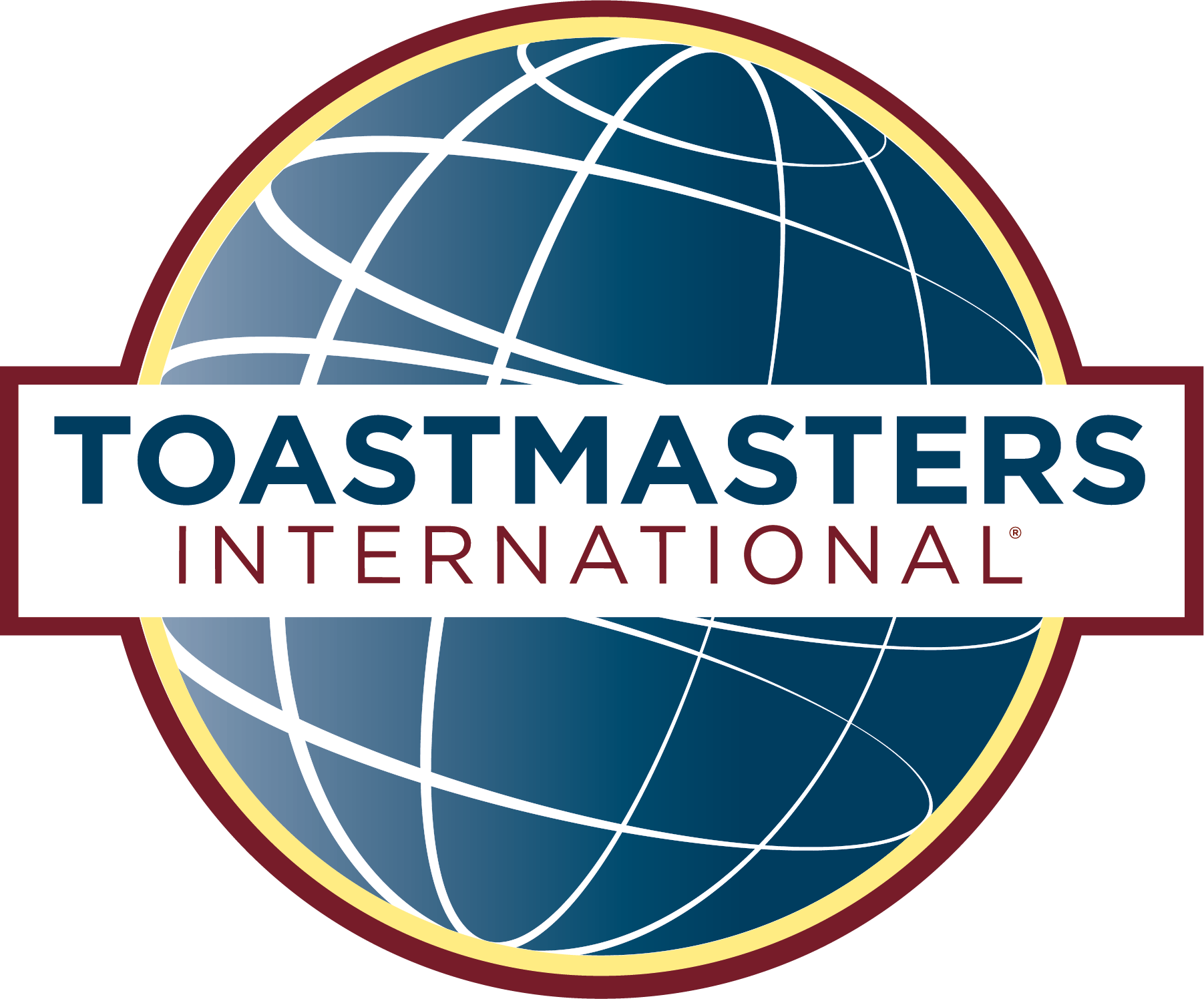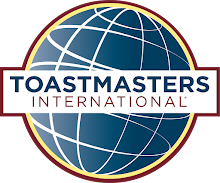http://www.toastmasters.org/ToastmastersMagazine/ToastmasterArchive/2009/June/Work-a-Room.aspx
Some people seem to have a knack for automatically connecting with others in any setting. For those who don’t, learning how to interact quickly and comfortably with others is critical. Businesspeople need to connect on a professional level and seamlessly build in information about their businesses and services without coming across as hucksters. Too little emphasis on work-related information can mean wasted time and effort. Too much emphasis on business can be a turnoff.
Networking experts know dozens of tips, strategies and techniques that can help people connect in virtually any setting. And while this is great news, the job of collecting all that information might be daunting to any one person. The good news is, you won’t have to track down all those experts to improve your skills, because the answers you need can be found right here. And from the first step, you’ll know where and how you’ll want to apply your new-found knowledge.
Have a Goal in Mind
Alice Waagen is president of Workforce Learning, LLC, a leadership training firm that helps C-level executives and managers improve relationships. Networking should be considered a professional activity and not a casual event, says Waagen, adding that it’s important to start with the end in mind. “The most important lesson I learned early on is to establish for yourself your goal or objective before you go to the event,” she notes. “That way you keep focused and don’t get distracted by the hors d’oeuvres, the drinks or your best buddy across the room.”
Craig Bott, president and CEO of Grow Utah Ventures, a company that works with entrepreneurs to help them get started, agrees. “While everybody networks and eagerly hits all of the big events with a fistful of business cards, ultimately the success of any networking event hinges on making real and lasting connections with people,” says Bott. He adds that choosing the right event is closely tied to the goals you have in mind. “Be selective and focused,” he recommends.
Prepare Your “Key Messages”
The goals you’ve established for a particular event should provide you with the basis to develop the “key messages” you wish to convey to those you meet. Never just “wing it,” regardless of how comfortable you feel in social settings.
“Crystallize the topic knowledge you have that will be of interest to the group,” suggests Bott. Knowledge, insight and expertise are what you exchange with others as you network,” he says. “The more you determine what you know and what you are passionate about, the more likely you are to truly connect with others.”
Cliff Flamer is a career counselor who has coached numerous clients on their networking tactics. He warns networkers to avoid jargon, especially when it comes to talking about what they do. Instead of leading with your job title and credentials, use layperson’s terms, he advises. So instead of saying, “I coordinate human resources software installations,” you might say, “I install HR software on peoples computers.”
Dan Weedin is a Seattle-based executive speech coach and an experienced Toastmaster. Personal stories can provide excellent opportunities to connect with people, says Weedin. “If you have a chance to relate a personal story, do it,” he says. “Fun stories are well received, especially when humor is involved. Use your best story – especially if a little self- deprecating – to connect with your audience.”
Bott, of Grow Utah Ventures, offers the following list of questions to help prepare for any networking event:
- Is this the best place for me to meet those who will value what I know?
- Is this the best place for me to meet those with knowledge that I need?
- What do I specifically have to share with others at this networking opportunity?
- What am I looking to find at this event?
- As I make connections, am I willing to invest in this relationship by sharing my knowledge and expertise with others?
Listen!
Even though you should come prepared with a good sense of what you hope to convey about yourself, you must focus first on others, say networking experts.
“The biggest problem that I’ve noticed at networking events is that people talk too much about themselves,” says Steve Clements, a speaking professional for more than 40 years. “People like to talk about themselves. [But] doing a pitch is a real turnoff.”
While knowing how to clearly describe yourself and what you do is important, you shouldn’t lead with this information, agrees Thom Singer, a longtime Toastmaster and the author of three books on the power of business relationships and networking.
What you should do, he says, is ask five to seven questions of the other person when you first meet. “More than likely, the other person will then ask questions back,” he says.
“Those who are the best at networking look first to offer what they know freely to others,” says Bott. “Relationships are then quickly formed with those who will remember your name and stay connected long after the social hour.”
Pay Attention to “The Small Stuff”
Little things can make a difference and sometimes the smallest detail can make the wrong impression – an impression you did not want to make.
“Make sure when you introduce yourself that you make good eye contact, smile warmly, give a firm handshake and repeat the person’s name,” says Weedin. “These seem like simple steps, but it’s surprising how often they aren’t done correctly.”
It’s also important to keep in mind that it’s not just what you say that people will notice, but also what you do.
“Remember that people are always watching each other,” notes Singer. That means, for instance, to monitor your eating and drinking behaviors. “Like free food, free booze is tempting, but try not to have more than one drink at an event,” he says. “People too often think they can handle their liquor better than they can and embarrass themselves at networking events when they are a bit tipsy.”
Flamer encourages Toastmasters to maximize connections with others at events. “At most networking functions, everyone’s intimidated and quick to feel alienated in a room of strangers,” he says. “Instead of sticking with a one-on-one format [if conversation lags], bring in a third party to your discussion by asking their opinion on a subject, recalling the conversation you had earlier or simply making an introduction for you and your new friend.”
“Three is a magic number,” adds Flamer. “No one feels scrutinized and each party gets to talk as much or little as they want. And, most important, you get credit for making it happen.”
Here are some quick tips for making connections:
- Wear nametags wisely – pinned to your upper right shoulder area. Most people are right handed and will extend their right hand and your nametag will be easier to view.
- Station yourself in a “destination location” – near a registration table, the buffet or the bar.
- Always go to the people who are standing alone. It’s easier to start a conversation with one person than with two or more.
- Remember your “ears and mouth” – you have two ears and one mouth because you should be spending most of your time listening!
After the Event
Of course, successfully “working a room” is just the beginning. The real networking begins after the event is over, say the experts.
“Networking is not about meeting and trading business cards,” says Singer. “It is about establishing a meaningful and mutually beneficial relationship. This takes time to create and cultivate.”
Immediately after an event, Patricia Vaccarino, managing partner of Xanthus Communications, LLC, a PR firm, makes a note of its date and location on the back of each business card she’s collected. She then triages the cards between “the drones and the connections” and take the time to solidify the connections with LinkedIn or Facebook.
And, again, Singer stresses: “Look for ways to assist them before you look for ways that they can help you.”
Lin Grensing-Pophal is a freelance business journalist in Wisconsin, where she also runs a communication consulting firm – Strategic Communications, LLC . She can be reached at linda@stratcommunications.com.
Networking Styles – Which Are You?
Don Gabor is a professional speaker and the author of eight books on communication skills, including How to Start a Conversation and Make Friends. He has identified four different styles of successful networkers:
1. Competitive Networkers. Action-oriented and direct communicators, competitive networkers are motivated by fast and measurable results. Confident and outgoing, they’re usually the ones who start conversations at networking events and they speak with purpose and get to the point.
2. Outgoing Networkers. People-oriented and friendly communicators, outgoing networkers are motivated by recognition and personal contact. They love to make small talk while they effortlessly mix and mingle in business and social situations.
3. Amiable Networkers. Emotion-oriented and caring communicators, amiable networkers are motivated by personal loyalty and teamwork. They are generally detail- and goal-oriented people who work hard to achieve high standards for themselves and others.
4. Analytical Networkers. Extremely detail-oriented and careful speakers, analytical networkers are motivated by accuracy and strive for deeper meaning and understanding in conversations. They communicate in a systematic, step-by-step manner, making sure they thoroughly cover each point they make.
The best networking practice, says Gabor, is to accurately identify the networking styles of others within the first few minutes of a meeting or conversation and then quickly adapt your networking style to best fit theirs.





No comments:
Post a Comment